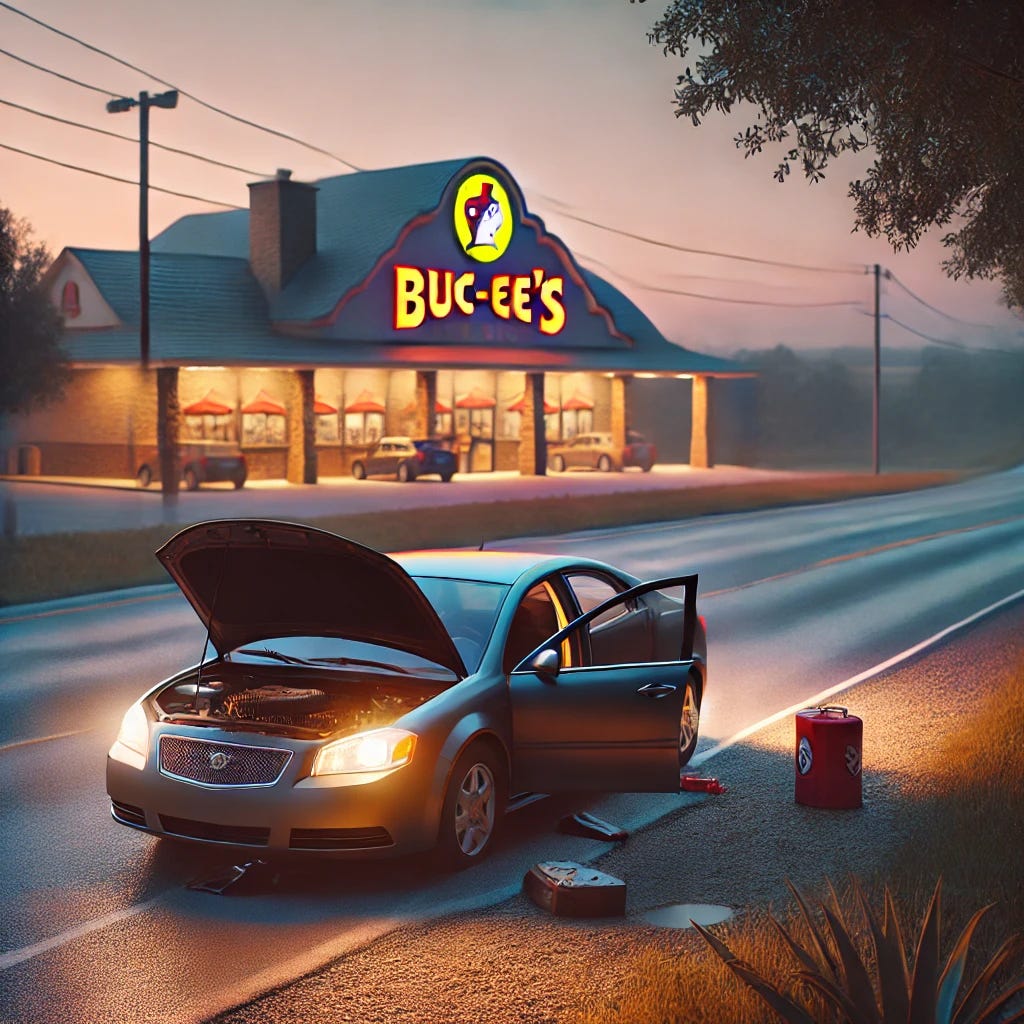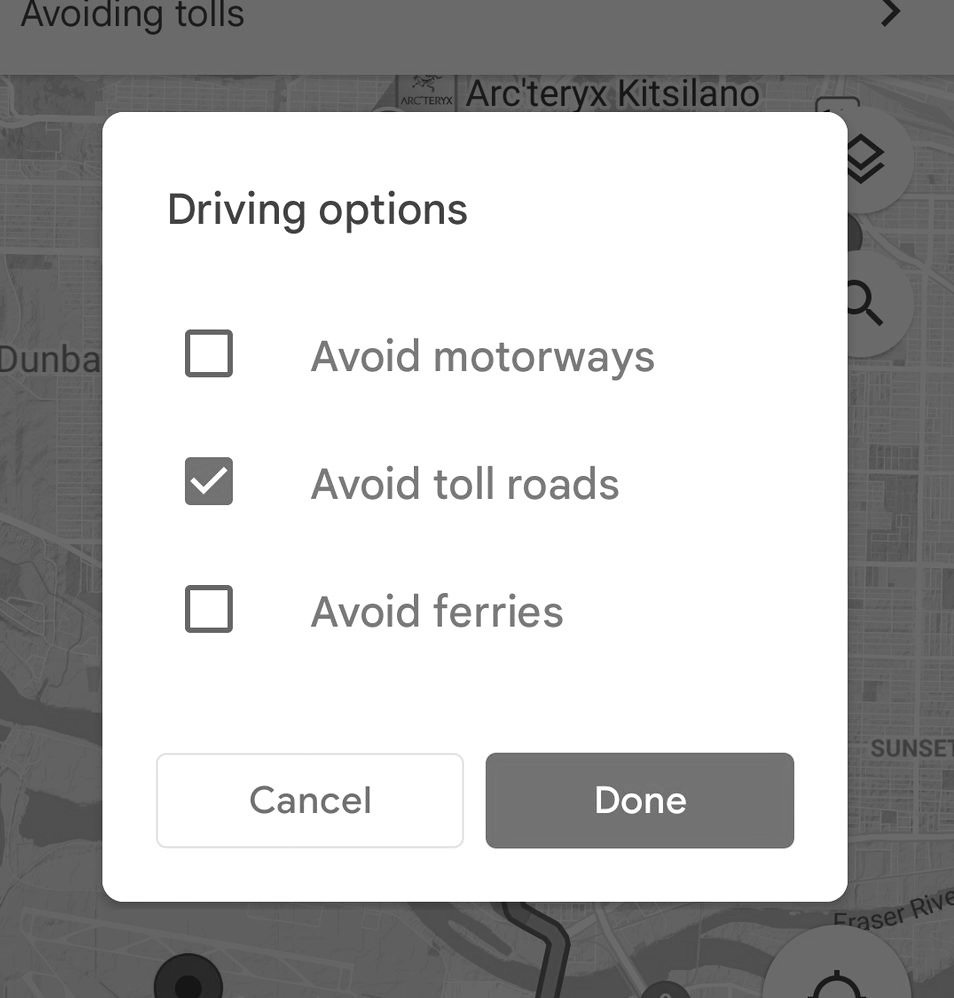02: internal rupture (what we do when values conflict)
are values actually preferences? is it okay to reassess your values if you're off track? wait, there's a right track? are tracks even real? ...and other questions I answer with extended metaphor
Earlier this year, I learned about a research group in my field that was recruiting members for a new project. The group’s work was practically focused, designed to create real-world impact with a nonprofit partner, and their approach was aligned with my values.
It seemed like a perfect fit—until it wasn’t:
I arrived at the introductory Zoom call for the research group this fall; about twenty of us were gathered on my screen - graduate students, professors, and researchers from around the world. As I listened, it became clear that the project’s focus was less about theoretical research and more about helping the partner implement a new initiative.
My lack of enthusiasm caught me off guard. Yes, working with community partners and doing applied work is crucial. At the same time - my current research priorities were shifting elsewhere, and this prompted weird feelings in my gut.
I was caught between a few competing values:
My passion for impact: This work will make a difference for the health of human beings. If that’s not the ultimate goal…what is?
My PhD timeline: Will this help advance my research? Time is ticking.
My personal commitments to not being a flake: I said I’d be part of this; I should honor that.
On the surface, everything we discussed felt value-aligned: meaningful, impactful work with a nonprofit, alongside other academics who value rigor. Yet, it somehow felt wrong. Everything worked out with the project (I met with one of the leads, realized the work was more flexible/low-key than I’d assumed, and am still on the team), but this experience surfaced a bigger question I’ve had for a while: what actually are values?
What Are Values?
We often think of values as stable, unchanging ideals—concepts like justice or freedom. But maybe they’re more fluid.1
In my life, it feels as though values shift according to priorities in a given moment, almost like they exist in a Schrödinger-like state (explanation here), both there and not there, until something brings them into focus. A value doesn’t fully “exist” until a point of tension forces it to the surface, at which point I have to look at it closely and consider how it aligns with the current situation2. They aren’t tools I carry or stable guideposts; they’re more like responsive priorities that emerge when circumstances demand clarity.
In this meeting, my values hadn’t changed, and the group project’s values hadn’t changed, but my enthusiasm for the work had shifted. It was as if my values were waiting in potential, existing in a way that felt both aligned and in tension, until the moment I had to make an active choice about where I stood.
If you read my last post, A Case for Stirring the Pot, you’re familiar with the concept of rupture in dialogue—a rupture is a moment when someone realizes they are misunderstood, which creates an opportunity to realign. Rupture can also happen internally when values collide, forcing us to recalibrate. It’s not just a moment of conflict; it’s what I call an “internal rupture,” a fundamental shift in understanding that comes from facing a real-life dilemma. In these moments, my values come fully into focus.
Let me walk us through an analogy…
Values as our GPS Settings
Consider, for instance, if you’re planning a long drive to a very important event, like a wedding. On a regular day, you might prefer to take the scenic route, stopping for photos and avoiding chaotic highways. But with the clock ticking, you start to question whether the scenic route is worth the risk, or if it’s better to take the highway to be on time. This is what an internal rupture feels like—different values collide, forcing judgment calls that adjust your route.
In my research group dilemma, though, there wasn’t a clear “scenic route” or “highway” choice. I couldn’t immediately identify which values were in tension; all I felt was the weight of the decision itself. But as I reflected, I realized I was recalibrating—prioritizing some values over others, recognizing what I was willing to give up for now.
This tension—the discomfort and need to make a choice—was the internal rupture itself, prompting a deeper examination of what mattered most to me in that moment.3
Of course, recalibrating a GPS on the go is risky. That’s why cars don’t let you adjust settings while you’re driving—it divides your focus, adds risk, and often leads to missing important exits. For these shifts, you need stillness—a safe place to pause.
Designing for Internal Rupture

My experience with the research group didn’t give me an immediate rest stop; it was more like a flashing signal on the dashboard, urging me to slow down and reassess. The tension I felt—between my commitment to the project, my PhD priorities, and my values—showed me that something needed a closer look. So I made the time. I reached out to the project lead, journaled about the meeting, and worked through the questions that had surfaced. Only in that quiet, more intentional, self-initiated space could I begin to ask: Does this opportunity align with my values right now? What is my ultimate destination, and how should I be ranking my values along this route?
Some of the most important decisions in my life have happened at rest stops that life threw upon me—a forced break, a leave of absence, or a financial shift. Other times, I’ve managed to carve out my own rest stops, like through biweekly therapy sessions or reflective journaling. These pauses don’t just help me reexamine the roads I’m taking; they allow me to reconsider if those roads lead where I truly want to go. Yet I also realize that making time for this kind of pause isn’t available to everyone. Basic needs, financial constraints, and social pressures can make it difficult for people to create or even justify rest stops.4
Conclusion
To drive the point (and this extended metaphor) home: yes, our values are fluid, adapting to our evolving goals and the information we encounter along the way. But we’re far better at recalibrating them if we give ourselves the time, headspace, and resources to do so.
Viewing values as fluid helps me see each decision not as a rigid test of consistency, but as a moment to check in, to stay aware of what’s shifting within and around me 5 , and letting those inform my next turn.
And if these pauses are essential for individual alignment, maybe they’re worth building into our shared spaces too. Imagine if workplaces, schools, or communities normalized these moments of recalibration, giving people permission to step back, to question, and to recalibrate their paths. Designing structures that allow for regular realignment would help us all move with a deeper sense of purpose and responsiveness, individually and collectively.6
bye bye! xx kayla
While I discuss values as fluid and adaptable, this might suggest a similarity to preferences, which can change easily based on circumstances. Yet, unlike preferences, values tend to hold more weight as guiding principles. So, maybe it’s only the ranking of values, rather than the values themselves, that changes with context. In this sense, values might be less flexible than they appear, even as we adapt how we prioritize them.
I’m using the Schrödinger mostly unseriously (I just wanted an excuse to reference a cat in this essay), but I do want to acknowledge that this analogy implies that values exist in a potential state, coming into full focus only when we confront a dilemma. BUT, if values only ‘exist’ when we face conflict, does that alter my definition of values completely? Perhaps values are less about fixed beliefs and more about situational guidance, waiting to emerge when we need them. Philosophically, this could mean values aren’t static ideals but moreso adaptable reference points in decision-making.*
*footnote footnote: I wonder if this is where intuition / pattern recognition / the “Holy Spirit”, to use my faith practices’ lexicon, comes in. Hm.
Lara, my friend and colleague at Georgia Tech, read an early version of this essay and texted me: “I feel like for values, instead of checkboxes like the GPS, it would be more like sliders… 30% of value 1, 80% of value 2, etc.”
This made me think of ranked choice voting.
Then thinking about ranked choice voting made me wonder if there’s a third option here, halfway between my tick boxes and Lara’s sliders: keeping the boxes but ordering them by preference (e.g. you decide to rank “no highways” as #1 and then “no tolls as #2”. you leave “scenic route” unchecked entirely. On the trip, your GPS has to choose between a highway without a toll and a non-highway with a toll. Based on your ranking it chooses the latter).
This could be its own post for another day, but a tough realization I had while writing this was that in certain seasons of my life, I’ve felt the need to prioritize basic survival needs over carving out time for a rest stop. Sometimes, if I have an extra hour, I’m sleeping, not journaling. When money is tight, therapy sessions go from weekly to monthly. I know I’m not alone in this. It’s also incredibly sad to me to consider the ways people are systematically prevented from making the time needed to pause and recalibrate; and if they can make the time - cultural norms & power dynamics can make it feel impossible to justify these rest stops to one’s employer, one’s family, or oneself. Dang.
Again, another post for another day, but there’s also something here about the proverbial vehicle you’re driving. Highways may be less of a concern if you’re in a self-driving car and trust it more than your own driving skills; thus it wouldn’t make as much sense to avoid highways (as long as you’re also okay with missing the oceanside views, etc. etc.). This is something I see my friends struggle with; taking conventional advice without considering that your vehicle might be an exception to the rule (and not feeling “guilty” about having a car that doesn’t have to be as cautious on the road). If you’re reading between the lines here I’m talking about what some people refer to as “privileges”. I don’t love that term because it implies that your privileges are universally valuable which isn’t true (driving a Tesla is cute and all, until you’re in a part of the US that doesn’t have any charging stations yet).
I sometimes wonder if certain institutions actively avoid building in rest stops for a reason: they know exactly how important they are. When given time to pause and reflect, individuals might realize that they don’t actually want to be there or that the job is taking them somewhere they never intended to go. By keeping us on a continuous track, institutions may limit our ability to question the direction or purpose of the work. This would challenge productivity-focused systems, which benefit from continuous engagement rather than reflection. Perhaps the reluctance to make space for personal recalibration is as much a cultural phenomenon as it is institutional.










I almost wonder if there is a thing about virtues vs values. I think virtues like justice and liberty are permanent and unchanging, yet objective. Values almost are maybe these virtues applied in a subjective way? Not sure, but was interesting food for thought as I went through your piece